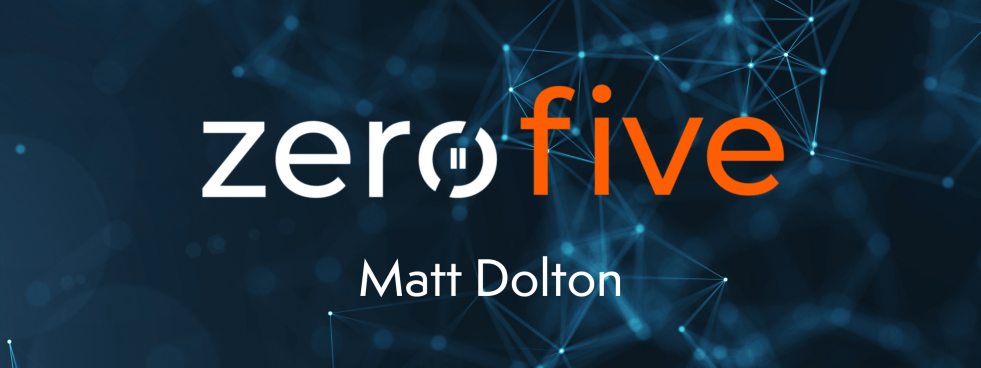ZeroFive with Nathalie Revillion Castro
The time has come to pause for five, listen for five, watch for five with Nathalie Revillion-Castro Pause & listen to industry experts Pause &

The video can be viewed on ZeroFive, below is a transcript of what Matt had to share.
Reece Chapman: Hello and welcome to the final episode of season one of ZeroFive. Today, I’ve got a special guest, Matt Dolton, who is not only my boss but CEO of Kynetix. Thank you for joining us today Matt. If you’d like to just take a quick moment to introduce who you are and your background in the financial sector.
Matt Dolton: Hi, I’m Matt Dolton. I’m one of the founders of Kynetix and I’ve enjoyed working with banks and brokerages for many years now, helping them solve their reconciliation and control challenges, data quality challenges. Making some great strides in bringing some big improvements to their businesses.
Reece Chapman: Jumping straight in, what do you think is driving change in post-trade processing today?
Matt Dolton: That’s a good question, Reece. I think there are a number of things that are happening today which are impacting the business. Volatility has been a big thing over the last few years. Particularly around growth and volumes but also Reg reporting and then the ever-changing regulatory landscape, people are looking to get their information straight before they submit it to regulators. I think data quality is a critical issue there and I think that’s driving a lot of people to get on top of their issues.
Reece Chapman: Interesting. And do you foresee any specific type or types of technology having the biggest impact on the post-trade space?
Matt Dolton: So it’s interesting, isn’t it? I think there are various things that are going to help us in the future. Obviously, cloud is a big thing at the moment. People looking to take advantage of the elasticity and flexibility and scalability that cloud offers. Obviously, people are talking about AI a lot but for me, one of the key things that organisations need to embrace is agile technology. Technology which can move and change with organisations as new issues and new challenges emerge. I think in our sector, particularly in the post-trade listed derivatives space, agility is going to become increasingly important.
Reece Chapman: Moving along to a subject which has come up constantly within the office, that being AI, what effect are you anticipating it to have?
Matt Dolton: Yeah, AI is a really interesting topic. We’re doing some R and D with it right now. I think we’re at the early stages of AI, so I think the opportunity there could be massive. I think we need to be careful that it doesn’t end up with a solution, looking for a problem to solve but I think in the realms of data quality, I think machine learning, given the volumes of data that are involved, is an obvious choice.
Reece Chapman: That’s an interesting way of looking at it. But taking a step back now and looking at the post-trade space again, what do you foresee as the biggest challenges that will need to be overcome?
Matt Dolton: So every organisation’s challenges are different, but there are often some common themes that we find anyway and I mentioned regulatory reporting earlier, that is an ongoing challenge. Regulators are constantly toughening things up and just organisations’ ability to move away from some of their embedded legacy platforms sometimes presents almost too much of a challenge to be able to embrace new technology. So, moving away from legacy stuff is difficult, we know.
Reece Chapman: Finally, to end off with one of your personal favourites, What do you forecast the impact of digital asset classes being?
Matt Dolton: Yes, so digital asset classes are very much a hot topic at the moment. A lot of talk about crypto and so on. When it comes to derivatives, particularly things like listed derivatives potentially, or even OTC stuff, I think post-trade processing, they’re just another asset class. I’m sure there will be discrepancies and differences, but that’s fine. I think the interesting stuff is around the edge of the digital asset and crypto world. Things like tokenisation will start to produce more variations on a theme and so the ability to cope with flexible, agile systems that can embrace those sorts of technologies is going to become increasingly important.
Reece Chapman: Thank you for joining us today, Matt, and being our final guest of season one of ZeroFive. I’d like to thank you all for watching and we’ll see you again soon. Goodbye!
The time has come to pause for five, listen for five, watch for five with Nathalie Revillion-Castro Pause & listen to industry experts Pause &
The time has come to pause for five, listen for five, watch for five with Matt Dolton Pause & listen to industry experts Pause &